GENERAL DATA
Plant Parts: Stem, leaf, seed
Cultivation Mode: Wild collection/ Cultivated
In Manufacturing: Pharmaceutical, food, spice, perfumery, fragrance, cosmetic, tobacco, alcoholic and non-alcoholic beverages, essential oil, extract, herbal tea.
🌿 Industries That Use Coriander Seeds (Coriandrum sativum L.)
Coriander seeds are an ancient, multifunctional botanical ingredient used across culinary, medicinal, cosmetic, and aromatic sectors. Harvested from the flowering coriander plant, these seeds are rich in essential oils, flavonoids, and minerals, offering both flavor and function.
1. Food & Culinary Industry
Coriander seeds are a staple spice in global cuisine and food processing.
Applications include:
-
Spice blends: curry powders, pickling spice, garam masala
-
Meat and sausage flavoring (esp. in German, Indian, Middle Eastern cuisines)
-
Bakery items, chutneys, and sauces
-
Used whole, crushed, or ground
✅ Also used in liqueurs and gin for a citrusy aroma
2. Pharmaceutical & Traditional Medicine Industry
Used traditionally for digestive, carminative, and anti-inflammatory properties.
Applications:
-
Relief for bloating, indigestion, flatulence
-
Mild diuretic and antispasmodic
-
Supports blood sugar regulation in traditional medicine
-
Decoctions for cough and cold relief
✅ Popular in Ayurveda, Unani, Traditional Chinese Medicine (TCM)
3. Herbal & Nutraceutical Industry
Coriander seed extracts and oils are present in:
-
Digestive tonics and appetite enhancers
-
Liver and bile support blends
-
Functional teas for gut health
-
Capsules or tinctures targeting metabolic support
✅ Known for balancing Pitta and Kapha in Ayurveda
4. Essential Oil & Aromatherapy Industry
Coriander seed oil (not to be confused with coriander leaf oil) has a warm, sweet-spicy, nutty aroma.
Applications include:
-
Muscle rubs and digestive massage oils
-
Stress-relieving blends in diffusers
-
Natural deodorants and air fresheners
✅ Key compounds: Linalool, pinene, camphor, geraniol
5. Cosmetic & Skincare Industry
Coriander seed extract and oil are used in:
-
Anti-acne and clarifying facial care
-
Aromatic body oils and scrubs
-
Anti-aging herbal blends due to antioxidant activity
-
Natural mouthwashes and oral care
✅ Known for its cleansing, antioxidant, and aromatic qualities
6. Animal Feed & Veterinary Use
Coriander seed powder is used as a digestive enhancer in poultry and livestock feed formulations.
-
Improves feed intake
-
May support gut health and act as a mild antimicrobial
7. Agricultural & Pest Management Industry
Coriander seed oil and extracts are studied for bio-pesticide development due to their insect-repellent and antifungal properties.
✅ Summary of Key Applications
| Industry | Common Uses |
|---|---|
| Culinary & Food | Spice blends, seasoning, baked goods, pickling, spirits |
| Pharmaceutical & Herbal | Digestive tonic, carminative, blood sugar aid, respiratory decoction |
| Nutraceutical | Capsules, teas, tinctures for metabolism and gut support |
| Aromatherapy & Essential Oils | Stress relief oils, muscle balms, natural perfumery |
| Cosmetic & Skincare | Antioxidant creams, acne care, herbal toothpaste |
| Veterinary & Feed | Livestock gut enhancer, poultry spice additive |
| Agriculture | Natural pesticide and antifungal formulations |
🌿 Key Features:
-
Part Used: Dried seeds (whole or ground)
-
Color: Pale yellow to brown
-
Flavor/Aroma: Warm, citrusy, spicy, slightly nutty
-
Main Compounds: Linalool, pinene, borneol, geraniol
-
Other Names: Dhania (Hindi), Koriander (German), Cilantro seed (US)
🌿 Industries That Use Coriander Leaves (Cilantro)
Coriander leaves, also called Cilantro in North America, are a fresh, flavorful herb used widely in culinary, medicinal, and cosmetic applications. Unlike the dried seeds, the leaves have a distinct pungent citrusy aroma due to different volatile compounds like aldehydes and aliphatic alcohols.
1. Food & Culinary Industry
Cilantro is an essential culinary herb across many cultures and cuisines.
Applications include:
-
Garnish and flavoring in Mexican, Indian, Thai, Middle Eastern, and Mediterranean cuisine
-
Ingredient in salsas, chutneys, soups, salads, and curries
-
Used fresh, blended, or juiced
-
Ingredient in herb-infused oils and sauces
✅ Often paired with lime, mint, and chili for freshness
2. Nutraceutical & Health Food Industry
Cilantro leaves are used in detox and wellness products for their purported ability to chelate heavy metals and support overall health.
Applications:
-
Detox smoothies, green juices, and antioxidant-rich shots
-
Functional foods targeting liver and kidney support
-
Rich in vitamin K, C, A, and minerals like potassium and iron
✅ Promoted for supporting chelation therapy and digestion
3. Pharmaceutical & Herbal Medicine Industry
Traditionally used for digestive relief, antimicrobial action, and cooling effect.
Uses include:
-
Natural digestive aid
-
Infusions and decoctions for bloating, flatulence, and nausea
-
Support for skin conditions and mild fevers
✅ Traditionally used in Ayurveda, Unani, and folk remedies
4. Cosmetic & Skincare Industry
The antioxidant-rich and antimicrobial nature of cilantro makes it suitable for topical applications.
Common uses:
-
Facial masks for clarifying and soothing skin
-
Hair rinses for scalp cleansing and toning
-
Infused oils and creams for skin purification
-
Natural anti-odor solutions
✅ Extracts and hydrosols used in eco-friendly formulations
5. Essential Oil & Perfumery Industry
Though coriander seed oil is more widely used, cilantro leaf essential oil is also distilled for niche aromatherapeutic applications.
Uses:
-
In natural deodorants and diffusers
-
In herbal-scented body sprays and spa blends
-
May provide calming and digestive aromatherapy benefits
✅ Contains decanal, dodecanal, and other aromatic aldehydes
6. Pet & Animal Health
Fresh cilantro is occasionally used in herbal pet diets or homemade blends for dogs and small animals to aid digestion and freshen breath (used sparingly and only under veterinary guidance).
✅ Summary of Key Applications
| Industry | Common Uses |
|---|---|
| Culinary & Food | Garnish, salsa, curry enhancer, salads, herb oils |
| Nutraceutical & Detox | Green juices, detox shots, antioxidant blends |
| Pharmaceutical & Herbal | Digestive infusions, traditional remedies for nausea and bloating |
| Cosmetic & Skincare | Anti-acne creams, toners, clarifying masks, scalp rinses |
| Aromatherapy & Fragrance | Herbal sprays, deodorants, light perfumery |
| Pet/Animal Use | Breath freshener and digestive herb (in controlled amounts) |
🌿 Key Features:
-
Part Used: Fresh aerial parts (leaves and stems)
-
Form: Fresh, paste, juice, dried (rare)
-
Flavor/Aroma: Sharp, citrusy, slightly soapy (due to aldehydes)
-
Main Compounds: Decanal, dodecanal, linalool, geraniol
-
Other Names: Cilantro (USA/Canada), Dhaniya (India), Chinese parsley
🌿 Comparison: Coriander Seeds vs. Coriander Leaves (Cilantro)
Both come from the same plant (Coriandrum sativum L.), yet they serve remarkably different roles in industry, cuisine, and herbal medicine.
| Feature | Coriander Seeds | Coriander Leaves (Cilantro) |
|---|---|---|
| Botanical Part | Dried fruits/seeds | Fresh aerial parts (leaves and stems) |
| Form | Whole, crushed, or ground | Fresh, chopped, paste, juice (dried form rare) |
| Flavor/Aroma | Warm, spicy, slightly nutty with citrus hints | Sharp, citrusy, slightly soapy or pungent (due to aldehydes) |
| Main Compounds | Linalool, pinene, camphor, geraniol | Decanal, dodecanal, linalool, aliphatic aldehydes |
| Culinary Use | Spice blends, pickles, meat seasoning, baking | Garnish, salad herb, chutneys, sauces, fresh flavoring |
| Nutritional Content | Minerals like calcium, magnesium, dietary fiber | Rich in vitamin K, A, C, iron, potassium |
| Medicinal Properties | Digestive aid, carminative, mild antispasmodic | Chelation support, antimicrobial, anti-inflammatory, detox aid |
| Traditional Systems Used | Ayurveda, Unani, TCM | Ayurveda, Folk medicine, Detox diets |
| Cosmetic Use | Oil used in scrubs, perfumes, body balms | Antioxidant face masks, clarifying toners, deodorants |
| Aromatherapy Use | Calming oil for digestion, muscle relaxation | Light herbal oil; deodorant and cleansing purposes |
| Shelf Life | Long (up to 1–2 years if stored dry) | Short (highly perishable, best used fresh) |
| Industrial Processing | Roasting, grinding, oil extraction | Juicing, freezing, essential oil distillation (rare) |
| Commercial Packaging | Spice jars, ground sachets, essential oils | Fresh bunches, vacuum-packed, herbal extracts |
| Common Markets | Spice trade, herbal supplements, essential oils | Fresh produce markets, detox food products, functional beverages |
✅ Summary Highlights
-
Coriander Seeds are valued for warming digestive support, culinary depth, and essential oil content.
-
Coriander Leaves (Cilantro) are prized for their fresh detoxifying properties, bright flavor, and antioxidant benefits.
-
Industrially, seeds are more shelf-stable and broadly used in spice and supplement industries, while leaves dominate the fresh culinary and nutraceutical markets.
PRODUCT NAME IN DIFFERENT LANGUAGES
Persian Name: گشنیز، کزبره، جلجلان/ Geshniz, Kozboreh, Jaljalan
German Name (Deutschland, Austria, Switzerland): Koriander Samen
French Name (France, Belgium, Switzerland, Quebec): Coriandre, Coriandre cultivée, Coriandre cultivé, Coriandre en graines
HARVEST CALENDAR
Feb
Mar
Apr
May
Jun
Jul
Aug
Sep
Oct
Nov
Dec
To order Coriandrum sativum seed, please contact us.
About Coriandrum Sativum
Coriandrum sativum is an annual plant whose height reaches one meter.
Coriandrum sativum stems are relatively thin, tender, and pale green, and their cross section is often square. Longitudinal grooves can be seen on the surface of these stems.
Coriander leaves are small and thin and grow crosswise. Each leaf has two deep cuts that divide these leaves into three parts with a jagged edge. Coriander leaves look like parsley, but are lighter and thinner. After the stems are fully grown, in the upper part of the plant new leaves will grow which are different from the previous leaves. These leaves are very small and branched and divided into narrow and pointed parts.
Coriander flowers are very small and pinkish white and grow in the form of umbrellas at the end of flowering stems. Each flower has several very small and completely separate petals. Only the outer petals of the side flowers of this plant grow in an almond shape and the rest of the petals remain closed.
Coriander seeds are spherical and relatively large, and there are prominent and parallel lines in the form of concentric radii on each of them. Coriandrum sativum seeds grow at the end of the flowers. These seeds are green and have bad odor, but after fully ripening, they turn pale brown and fragrant.
The best Chinese Parsley seeds are fresh, large, fully ripe, with a spicy taste and a strong aroma.
To order Coriander seeds, please contact us.
Coriander Seed Temperament
At the second degree of cold and dry.
The composition of Cilantro seeds essential oil was found to vary with place of production.
The Argentinean and European coriander contain linalool, α-pinene, γ-terpinene, camphor, limonene.
The essential oil from New Zealand contained linalool, α-pinene, γ-terpinene, camphor, and limonene
In Russian Coriander seed essential oil, linalool. Hence, we can conclude that linalool was the main compound in the coriander seed essential oil.
To order Coriander seeds, please contact us.
Coriander Health Benefits
This plant strengthens the sexual power of hot temperament people and relieves inappetence.
Coriander leaves reduce the intensity of Yellow bile and relieve thirst. Coriander seeds are enlivening, brain tonic, heart tonic, and stomach tonic. Coriander honey is stomachic, enlivening, brain tonic, heart tonic, stomach tonic, soporific, increases mother’s milk and gum tonic.
Coriander leaves improve stomach inflammation and vomiting. Drinking 20 grams of its leaf juice with vinegar and Sumac (Rhus coriaria L.) is soporific and prevents the ascent of stomach vapor to the brain.
Drinking 20 grams of Coriander leaf juice with sugar is stomachic and soporific and helps to relieve indigestion. Keeping Coriander leaf juice in the mouth is useful for removing heat and burning in the mouth, and the pain of rotten teeth. The drops of Coriander leaf juice in the eyes removes the yellowness of the eyes and prevents the development of smallpox and typhoid in it. Rubbing dried Coriander leaf powder on the gums strengthens the gums and stops bleeding. The poultice of its leaves treats hot swellings, prevents hot substances from pouring into the body organs, and helps to eliminate erysipelas. Coriander leaf poultice with barley flour dissolves hard swellings and improves scrofula.
Poultice of Coriander leaf juice with Damask Rose oil and some lead on cancerous wounds is effective.
Coriander seeds prevent the ascent of stomach vapor to the brain and improve palpitation, hot obsession, diarrhea, semen flow and urinary tract ulcers. Drinking the decoction of Cilantro seeds or its soaked water or eating its roasted seeds cures bloody diarrhea, excessive bile, and palpitation. Drinking Coriander seeds powder syrup or soaking its powder in vinegar is useful for dizziness. Its seed poultice relieves hot headache. Coriander seeds poultice with honey and olive oil helps to treat scarlet fever and anthrax. Its seed poultice with White Sandalwood and Anise is stomach tonic and relieves belching. Sprinkling its seed powder on wounds is useful to stop bleeding.
Coriander honey improves indigestion, fever, measles, smallpox, cough, cold, catarrh and shortness of breath.
To order Coriander seeds, please contact us.
Coriander Dose
Coriander leaves up to 50 grams, its juice up to 25 grams and Coriander seeds from 10 to 25 grams.
Coriander Side Effects
Coriander is harmful to the people with shortness of breath. Eating 120 grams of coriander juice causes forgetfulness, mental disorders, hoarseness, low sperm count, sexual weakness, lack of erection, and stops menstrual bleeding. In this condition, the patient’s body smells like coriander.
Coriander Modifiers
Half boiled eggs and Sekanjebin for those with shortness of breath. If someone gets sick by drinking too much coriander juice, he or she should vomit first. Then eat half boiled egg yolk with pepper and salt, and chicken broth with Cinnamon.
🧾 Nutrition Facts – Dried Coriander Seeds (Coriandrum sativum L.) (Per 100g)
Botanical Name: Coriandrum sativum L.
Common Names: Coriander Seed, Dhania, Cilantro Seed
Part Used: Fully dried ripe seeds
Traditional Use: Widely used in culinary spice blends, digestive tonics, traditional medicines (Ayurvedic, Unani, and TCM) for gastrointestinal, metabolic, and circulatory health
🔹 General Composition (Per 100g, dried)
| Nutrient | Amount | % Daily Value (DV) |
|---|---|---|
| Calories | ~298 kcal | 15% |
| Water (residual) | ~8.9 g | — |
| Protein | ~12.4 g | 25% |
| Total Fat | ~17.8 g | 27% |
| • Saturated Fat | ~1.0 g | 5% |
| • Polyunsaturated Fat | ~13.0 g | — |
| • Monounsaturated Fat | ~2.5 g | — |
| Carbohydrates | ~54 g | 19% |
| • Dietary Fiber | ~42 g | 150% |
| • Natural Sugars | ~0.9 g | — |
✅ Extremely high in dietary fiber and healthy fats; used in small amounts as spice or herbal extract
🔬 Mineral Content
| Mineral | Amount | %DV |
|---|---|---|
| Calcium | 709 mg | 55% |
| Iron | 16.3 mg | 90% |
| Magnesium | 330 mg | 78% |
| Phosphorus | 410 mg | 33% |
| Potassium | 1267 mg | 27% |
| Zinc | 4.7 mg | 43% |
| Manganese | 1.9 mg | 83% |
| Copper | 0.97 mg | 108% |
| Selenium | 26.4 mcg | 48% |
🪙 Exceptionally rich in minerals, especially iron, magnesium, potassium, and copper
🌿 Vitamin Content
| Vitamin | Amount | %DV |
|---|---|---|
| Vitamin C | 21 mg | 23% |
| Vitamin A (RAE) | 0 mcg | 0% |
| Vitamin K | 310 mcg | 258% |
| Thiamine (B1) | 0.24 mg | 20% |
| Riboflavin (B2) | 0.29 mg | 22% |
| Niacin (B3) | 2.1 mg | 13% |
| Pyridoxine (B6) | 0.14 mg | 11% |
| Folate (B9) | 63 mcg | 16% |
| Vitamin E | 2.5 mg | 17% |
🌱 Very high in Vitamin K and supportive B-complex vitamins
🧪 Phytochemical & Bioactive Compounds
-
Linalool – Primary volatile oil; calming, antimicrobial, and carminative
-
Camphor, Geraniol, α-pinene – Additional aroma compounds
-
Coumarins – Circulatory and blood-thinning effects (in trace amounts)
-
Phytosterols – May help regulate cholesterol
-
Flavonoids (e.g., quercetin) – Antioxidant and anti-inflammatory
-
Tannins – Mild astringency; support digestive tract toning
🌾 Coriander seed oils are often cold-pressed for nutraceutical and cosmetic applications
🩺 Health Benefits
| System | Traditional Use Benefits |
|---|---|
| Digestive | Reduces bloating, gas, and indigestion |
| Circulatory | Supports healthy lipid metabolism and blood pressure |
| Endocrine | May support blood sugar regulation |
| Nervous System | Linalool contributes to mild anxiolytic effect |
| Urinary | Traditionally used as a mild diuretic |
🫚 Especially valued in Ayurveda and Unani as a cooling, digestive stimulant
⚠️ Usage & Safety Notes
-
Culinary Use: Common in spice blends (e.g., garam masala, ras el hanout)
-
Herbal Dosage: 1–3 g per day (whole or powdered seeds)
-
Contraindications: None known at culinary levels
-
Pregnancy Use: Generally safe when used as a spice; consult before medicinal use
-
Drug Interactions: None significant at normal use levels
📦 Storage Guidelines
-
Store whole seeds in airtight, light-proof containers
-
Keep in a cool, dry place
-
Shelf life: Up to 2 years when stored properly
-
Powdered form should be used within 6–8 months for maximum potency
📌 Disclaimer
This nutritional data is provided for educational and cataloguing purposes only. Coriandrum sativum seeds are not classified as medicinal drugs and should be used under appropriate food safety or herbal guidelines.
🧾 Nutrition Facts – Dried Coriander Leaves (Coriandrum sativum L.) (Per 100g)
Botanical Name: Coriandrum sativum L.
Common Names: Coriander Leaf, Cilantro, Chinese Parsley
Part Used: Aerial parts (leaves and tender stems), dried
Traditional Use: Used in culinary preparations, digestive teas, detox blends, and traditional medicine systems for its carminative, antioxidant, and detoxifying properties
🔹 General Composition (Per 100g, dried)
| Nutrient | Amount | % Daily Value (DV) |
|---|---|---|
| Calories | ~279 kcal | 14% |
| Water (residual) | ~7.2 g | — |
| Protein | ~21.3 g | 43% |
| Total Fat | ~4.2 g | 6% |
| • Saturated Fat | ~0.6 g | 3% |
| Carbohydrates | ~45 g | 16% |
| • Dietary Fiber | ~36 g | 129% |
| • Natural Sugars | ~2.1 g | — |
🌿 Exceptionally rich in protein and fiber for a leafy herb; suitable for use in detox teas, seasoning powders, or digestive formulations
🔬 Mineral Content
| Mineral | Amount | %DV |
|---|---|---|
| Calcium | 1240 mg | 95% |
| Iron | 18.6 mg | 103% |
| Magnesium | 350 mg | 83% |
| Potassium | 4460 mg | 95% |
| Phosphorus | 275 mg | 22% |
| Zinc | 4.2 mg | 38% |
| Manganese | 2.1 mg | 91% |
| Copper | 0.78 mg | 87% |
| Selenium | 18.2 mcg | 33% |
🪴 Extremely rich in iron, calcium, potassium, and magnesium — great support for circulation and electrolyte balance
🌿 Vitamin Content
| Vitamin | Amount | %DV |
|---|---|---|
| Vitamin C | 83 mg | 92% |
| Vitamin A (RAE) | 745 mcg | 83% |
| Vitamin K | 678 mcg | 565% |
| Thiamine (B1) | 0.34 mg | 28% |
| Riboflavin (B2) | 0.46 mg | 35% |
| Niacin (B3) | 3.1 mg | 19% |
| Vitamin B6 | 0.38 mg | 29% |
| Folate (B9) | 182 mcg | 46% |
| Vitamin E | 4.6 mg | 31% |
🌱 Very high in Vitamin K, Vitamin C, and Folate — ideal for immunity, blood clotting, and antioxidant support
🧪 Phytochemical & Bioactive Compounds
-
Linalool & Geranyl Acetate – Mild sedative and anti-inflammatory aroma compounds
-
Quercetin & Kaempferol – Flavonoids with strong antioxidant potential
-
Coumarins – May contribute to vascular support
-
Chlorogenic & Caffeic Acids – Antioxidant polyphenols
-
Carotenoids (Lutein, Zeaxanthin) – Supportive of eye and skin health
🍃 The drying process preserves most antioxidant compounds, especially in properly shade-dried leaves
🩺 Health Benefits
| System | Traditional Use Benefits |
|---|---|
| Digestive | Carminative, helps relieve bloating & nausea |
| Immune System | Rich in antioxidant vitamins and flavonoids |
| Circulatory | Iron and potassium support blood flow |
| Detoxification | Used in Ayurvedic and detox blends for toxin elimination |
| Skin & Eyes | Carotenoids and Vitamin A promote tissue repair |
🥣 Often used in herbal soups, chutneys, detox teas, and seasoning powders
⚠️ Usage & Safety Notes
-
Suggested Use: 0.5–2 g per day in tea or seasoning
-
Taste Profile: Fresh, grassy, slightly citrusy
-
Caution: Very high in Vitamin K – may interfere with blood thinners
-
Pregnancy Use: Safe in culinary amounts; high-dose extracts not advised without supervision
📦 Storage Guidelines
-
Store in tightly sealed, opaque containers
-
Avoid heat and direct sunlight
-
Use within 6–12 months for best potency
-
Crumble leaves just before use to retain essential oils
📌 Disclaimer
This data is provided for educational and cataloguing purposes only. Nutritional values may vary slightly depending on harvest origin and drying conditions. Always consult with a qualified herbalist or professional before using herbs medicinally.
To order Coriandrum sativum seed, please contact us.


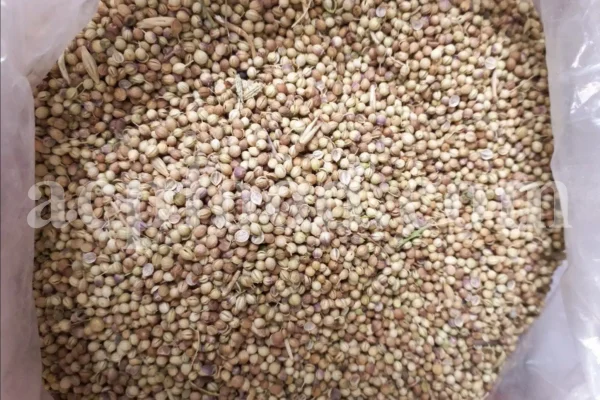
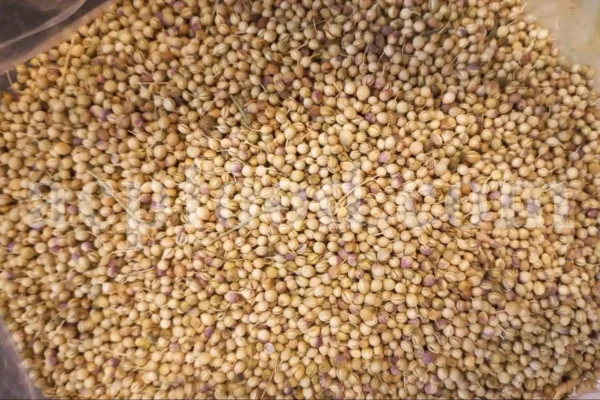

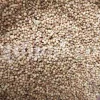
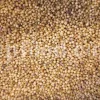
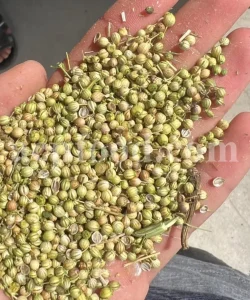


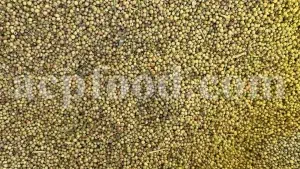
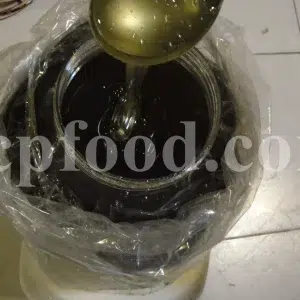
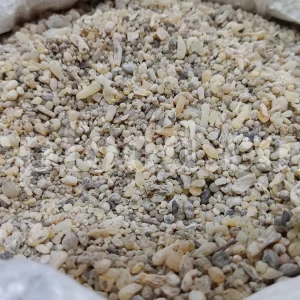

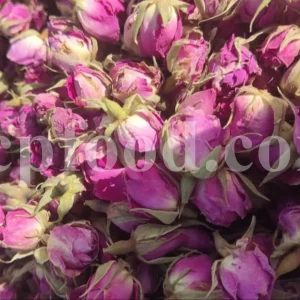
Reviews
There are no reviews yet.